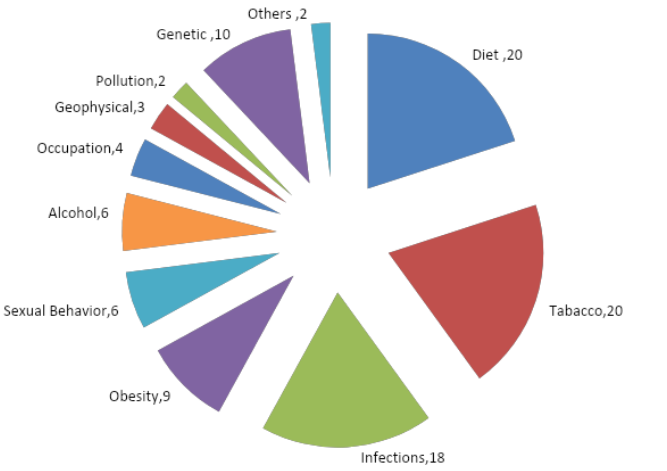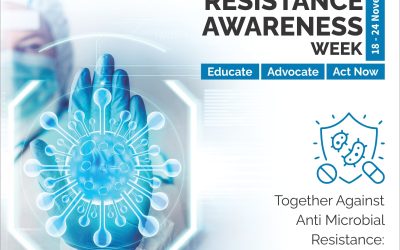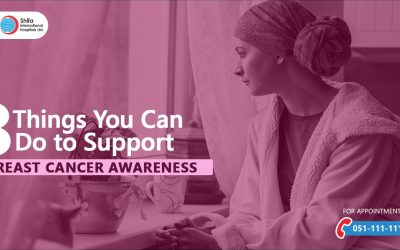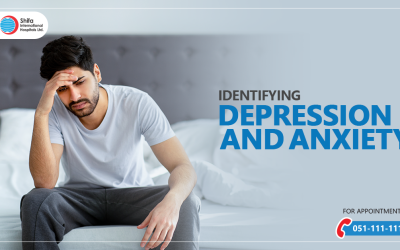Quit Smoking, Eat Healthy, and Exercise Daily

A QnA Session With The Best Oncologist
“Quit smoking, eat healthy and exercise daily to prevent up to one-third of all cancers”, says Dr. Ikram Burney,
a medical oncologist at Sultan Qaboos University Hospital, Muscat Oman, in an interview with Haleema Azmat & Sabahet Nasim
What is the difference between cancer and carcinoma?
Carcinoma is one of the types, in fact, the most common type of cancer. It arises from either skin or the lining membrane of various organs. Other types of cancer, such as:
Sarcoma: Sarcoma start from the bones and muscles.
Lymphoma: Lymphoma arises from the lymph glands.
Leukemia: Leukemia starts from the blood-forming cells and melanoma arises from the color pigment of the skin.
What is the difference between a surgical, radiation, and medical oncologist?
Surgical oncologists: Surgical oncologists are specialists specifically trained to treat cancer with surgical excision.
Radiation Oncologists: Those who treat cancer with radiotherapy are known as radiation oncologists.
Medical Oncologists: Whereas those who treat with medicines (including chemotherapy, and more recently with targeted therapy and immunotherapy) are medical oncologists.
Their work can however overlap, depending on the training. For example, sometimes radiation oncologists use chemotherapy to enhance the effect of radiotherapy and in some countries, surgeons also administer chemotherapy. Keep in mind, cancer is a complex disease and may require more than one form of treatment. Usually, the decision about treatment for any patient is made by specialists including pathologists and radiologists.
Because of the medical training, responsibility for overall management usually lies with the medical oncologist. The medical oncologist not only takes surgical and radiation oncologists on board when needed but also coordinates care with doctors from other disciplines, such as cardiologists, chest specialists, gastroenterologists, and physiotherapists.
What causes cancer?
Cancer is brought about by a combination of environmental and genetic factors, and interaction between the two. It is important to keep the ‘seed and soil’ hypothesis in mind while we think about why cancer develops. Contrary to common belief, only about 10 percent of all cancers are caused by genetics.
All other forms are caused by environmental factors, such as diet, tobacco smoke, infections, obesity etcetera. Over the last 30-40 years, more people are diagnosed to have cancer, mainly because of environmental factors, such as smoking and unhealthy lifestyles. Many of these causes are completely preventable. People who do not smoke, eat a healthy diet (limit the consumption of red meat, processed food, and energy drinks and use plenty of fresh fruits and vegetables), and do regular exercise (30 minutes of vigorous exercise daily) and maintain a healthy body mass index have a one-third reduction in the risk of developing cancer. In addition, out of the five major types of infections responsible for causing up to 20 percent of all cancers, three (hepatitis B and C and human papillomavirus) can be prevented either by observing preventive measures or by immunization.
Can styrene, Wi-Fi, mobile phones, microwave ovens, antiperspirants, deodorants cause cancer?
There is a lot of discussions in the scientific circles as well as in the popular press, incriminating these factors as the cause of cancer. At this stage, it may be prudent to understand that there is a biological rationale to think many of these stimuli are injurious, can induce inflammation, and may potentially cause cancer. However, contrarily, there is as yet no firm, unequivocal evidence to suggest these agents are a direct cause of cancer.
Does stress cause cancer?
Many people ascribe cancer to stress. However, the definition of stress needs to be clear. Stress can be secondary to several factors such as examinations, driving in rush hours, broken homes, financial losses, loss of loved ones etcetera. All these forms of stress are common and none has been related to cancer. However, persistent physical stress, such as chronic inflammation due to obesity or smoking causes changes in the micro-environment in the body, leading to cancer.
Does chemotherapy damage the immune system?
Chemotherapy can certainly damage the immune system. However, some types of chemotherapy damage the immune system more than others. And some drugs suppress the immune functions of the body for longer than others. On one hand, chemotherapy affects the immune system, and on the other, several cancers damage and even destroy the immune system. Hence, it is important to understand and discuss the pros and cons of chemotherapy with the patient. When chemotherapy is prescribed, the oncologist has already considered that the benefits would outweigh the risks.
How can we boost their immune system?
The immune system can be boosted by eating and sleeping well. Include light exercises during the course of chemotherapy. A diet rich in fresh fruits and vegetables, with ample vitamins and minerals, less saturated fats, and no smoking and drinking alcohol helps boost the immune system. Excessive use of vitamins and minerals may be harmful. The supplement should only be taken if there is a deficiency of vitamins or minerals in the body. Several studies suggest that excess of vitamins and minerals not only damage finances but also health!
Could natural food be used to cure cancer?
Natural foods may undeniably, have cures for many illnesses. In fact, many of the drugs used for the treatment of cancer, diabetes, and heart diseases are derived from natural foods, plants, or marine sources. The important question is the amount (dose), how often (frequency), and for how long (duration) to use these agents.
For example, vinca alkaloids are being used for the treatment of leukemia for the past 50 years. But it is inconceivable to believe that one flower, one gram, or one kilogram, taken every four or eight hours, for a month or year will do the trick. Hence, it is important to go by the evidence. At the moment, there is little evidence that natural foods or products can provide a substitute for drugs. The evidence is generated after research on cell lines, animal studies, and clinical trials. For now, people should refrain from considering natural products as alternatives to drugs. Eating plenty of fresh fruits and vegetables can prevent cancers and even boost immunity.
How important is it for patients to remain optimistic?
Staying ‘positive’ is the Cinderella of cancer care. It is a common observation that patients who are positive about their illness ultimately do well. However, not much has been studied systematically. Also, family and friends are an integral part of the team providing care to cancer patients, especially in our part of the world. Cancer care can be seen as a tri-legged stool, and care cannot be provided to patients without caregivers. Quality caregiving enhances the patient’s physical and emotional well-being. An increasing emphasis on cancer care warrants recognition, research, and reinforcement of caregivers’ capacity, wellbeing, and ability to provide support to patients.
Do pharmaceutical companies try to suppress the cure for cancer to promote their own business?
I am certainly not aware of that! On the contrary, I believe that academia, the pharmaceutical industry, and governmental regulatory bodies all work for the common good in the fight against cancer. The progress over the last 30 years is evidence of that. Struggle despite the increasing incidence of cancer, the cure rates have improved. Today, we see many people living with cancer. Up to 70 percent of all cancers in some countries can be cured with the prevention, early detection, better treatment, and better supportive care. Over the last several years, innovations in treatment, such as targeted therapy and the use of the body’s immune system to target cancer have not only increased cure rates but also made the treatment less toxic.
What are some of the latest developments in the field of cancer?
Over the last five years alone, the use of immune checkpoint inhibitors for the treatment of multiple types of cancer, and next-generation sequencing and liquid biopsy for molecular diagnosis have rapidly changed the outlook for patients. As a result, the field of oncology is rapidly progressing towards personalized medicine, also known as precision medicine.
Are there any vaccines to prevent cancer?
Finding a vaccine to prevent cancer is considered the holy grail. But the fact remains that vaccines are available to prevent some infections leading to cancer. For example, universal vaccination for hepatitis B virus has been shown to reduce the incidence of liver cancer in the far-east, and vaccine for human papillomavirus has been shown to reduce the incidence of cancer of the uterine cervix. However, the endeavor to search for a vaccine for other common forms of cancer continues. Till then, quit smoking, eat healthily and exercise daily to prevent up to one-third of all cancers.





0 Comments